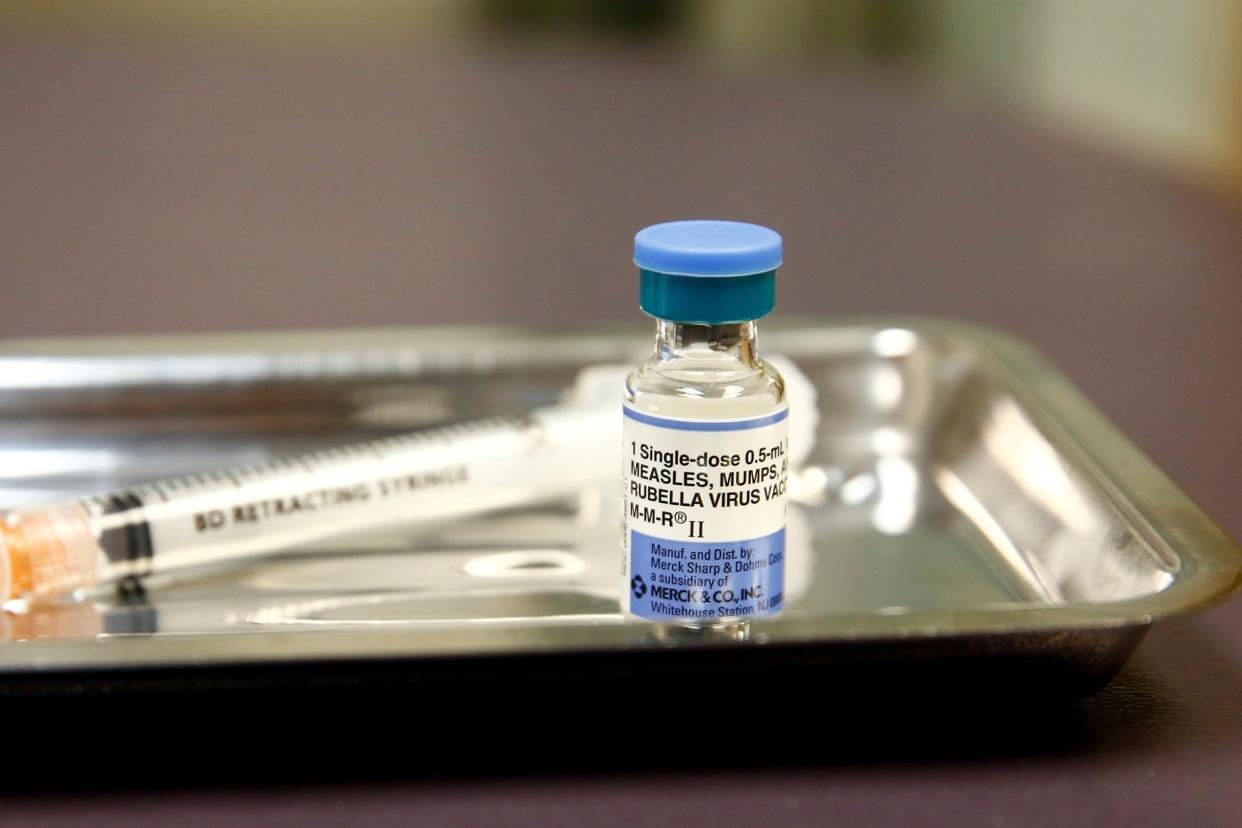The Reader: Missed MMR jabs put our children in danger

This week it has emerged that the UK has been stripped of its measles-free status . At the same time, Public Health England warns that a quarter of five-year-olds in the capital might not be up to date with their MMR immunisations. With the start of the new primary school term coming soon, this puts young Londoners at needless risk of contracting measles, mumps and rubella.
While social media platforms need to clamp down on the spread of misinformation from “anti-vaxxers”, clinical commissioning groups and local authorities must work together to prioritise campaigns on the importance of immunisation.
Despite his limited powers in this area, the Mayor is using his Healthy Early Years scheme to support the uptake and recording of immunisations for under-fives.
It is also imperative that Londoners who have missed vaccinations earlier in life contact their GP as soon as possible for a catch-up injection.
Dr Onkar Sahota AM, Labour’s London Assembly health spokesperson
Editor's reply
Dear Onkar
I’m reading Charlie and the Chocolate Factory with my daughter, and your letter brought to mind Roald Dahl’s comments about measles, which killed his daughter, Olivia, aged seven. “It is almost a crime to allow your child to go unimmunised,” he wrote, dedicating The BFG to Olivia’s memory.
How right he was. Public Health England warned this week that about 30,000 five-year-olds enter reception having not had any MMR jabs. The injection is normally given at 12 months and at three years and four months. Only 60 per cent of five-year-olds in Westminster, 63 per cent in Kensington and Chelsea, and 64 per cent in Hammersmith and Fulham, are fully protected. A 95 per cent rate is needed for “herd immunity”.
Across London there were 334 cases of measles from January to the end of June, compared with 379 in the whole of 2018. In 2017 there were 243. Parents must think not only of their own children but others too.
Ross Lydall, Health Editor
Courts sell-off hits our justice system
The problems with delays and closures in the criminal courts (“Cops count. So do courts”, August 20] are matched by those affecting all civil courts and tribunals that remain in the capital.
The sell-off of courts and tribunal offices has made our once-envied civil justice increasingly remote and hard to access by the public. The erosion of legal aid, advice services of all kinds and court administration (particularly since 2013) has put great strain on litigants, court staff and the judiciary. Such courts and tribunals are often far from the communities they cover. Predictably this hits the most disadvantaged, who sometimes may not be even able to afford to reach court, whether as litigants or witnesses.
Delays unparalleled since the Victorian era now afflict the system. For example, in employment cases, employees bringing a claim may easily wait nine months to a year for a hearing, by which time an employer may have closed down entirely and disappeared. Conversely, employers facing groundless claims have to face an equally long wait to be cleared.
The only people routinely doing well from the current malaise are lawyers for the wealthy, offshore landlords, insolvency practitioners and debt collectors. The Ministry of Justice needs to give more attention to administering and preserving justice rather than selling it off.
Alan Murdie, Chairman, Nucleus Legal Advice
NHS has to draw the line on IVF
In her Comment column, Laura Weir says “denying single women IVF is a disgrace” [August 20]. But isn’t this the problem with freely available healthcare?
We can all identify a good reason to spend NHS funds on various treatments. However, money is a constraint for the health service and there is a need to distinguish between “nice to have” and “must-have” treatments.
It’s hard to know where to draw the line but surely we must abide by it, or else we risk financial oblivion for the much-loved NHS.
Phil Race
As a fellow single mother, the fact that some are denied the right to IVF treatment in London due to the burden we place on society seems laughable to me.
We are the thread that holds society together. We are raising the next generation single-handedly, despite the fact that many in society look down on us. Hopefully, following Laura’s comments, there will be some change.
Ruby Abbiss

 Yahoo News
Yahoo News 
